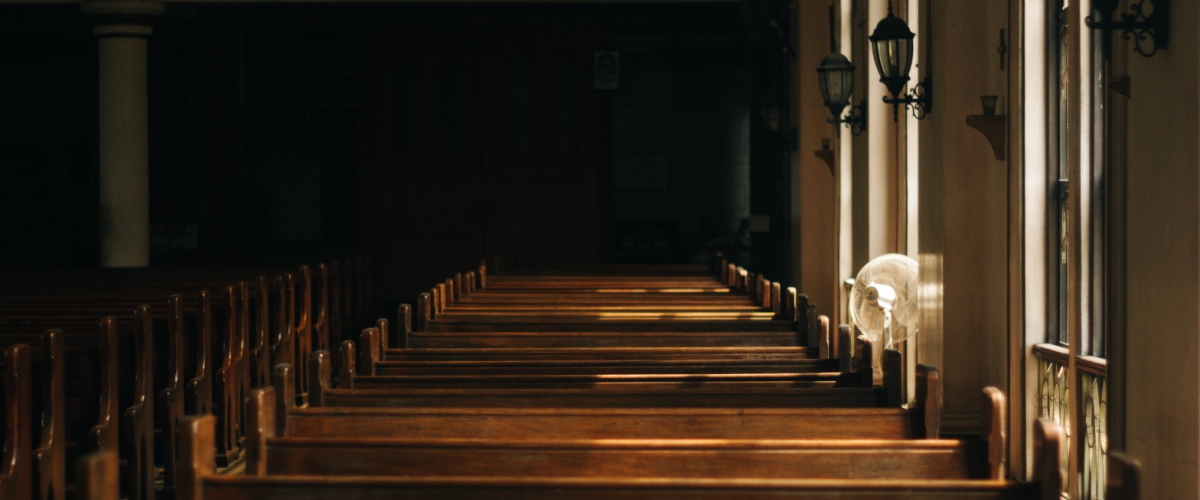The Problem Is The Church
People are leaving the Church. One could provide statistics to prove it, but most of us already know many are exiting without having to see a bunch of numbers. We can easily observe this occurrence in society at large or in our own local body. Perhaps, even, you’re one of the departed.
There’s a myriad of reasons for why people are leaving the church. We could approach the reasons from a couple different directions. One approach is that issues exist with the church, and the other is that problems lie within the culture. This is not an either/or situation but a both/and problem. So for this post, we will focus on the former, and address the latter in a another post. (See what to do about the issue.)
The Problem Is the Culture ♦ What to Do About It
One reason people are fleeing churches in large order is because churches represent only one dimension of life—the spiritual aspect. But most of life occurs outside the walls of the church. The Church has lost its connection to the importance and significance of ordinary life and existence. And it has no one to blame but itself. The Church’s primary function has come to be (almost solely) the feeding of spiritual needs, and usually this is done exclusively on Sunday. It has limited itself to one week day and has little effect or say over what happens the rest of the week. In other words, the church has ostracized itself from everyday life.
The split between Sunday and the rest of the week is due in part to the dichotomy of thinking that exists among God’s people—a separation between the spiritual and material, the sacred and the secular. The spiritual and sacred happen on Sunday, and the material and secular happen on the other six days, creating a divide between the Church and professing Christians. And the chasm is growing larger, and people are leaving the church.
When we come to the culture at large, those who are not professing Christians or Church goers, generally there are three kinds of people: spiritually minded, secularly oriented, and those with a pagan approach. I don’t use the word “pagan” in a derogatory sense; it is simply descriptive. It refers to those who like to “eat, drink and be merry,” which in some ways, I can appreciate.
Let’s look at how these three kinds of people see the Church’s spiritual orientation. The spiritual person is looking for enrichment but is likely to turn to other sources than the Church to satisfy their spirituality. Secular people are not likely to turn to any spiritual source for strength and guidance, and especially not the Church. Pagans live each day with gusto, or they can’t wait for their next opportunity to do so, which usually is Saturday and Sunday. And well, that leaves out the Church—not much excitement there anyway.
One solution is for the Church and the people of the Church to become “builders.” There is a whole lot more to building than what happens on Sunday. In fact, most building happens on days not labeled Sunday. Most building is material—not spiritual—in nature. The Church should consider building a kingdom. What do I mean? Read on.
The problem with churches for years was that they were good at saving souls but came up short in making disciples, as Jesus charged us to do. And many decried the practice of salvation without taking people through some form of discipleship process, and they were right to cry out. There has been some improvement in this area, but not nearly enough. Otherwise, we would not be in the position of seeing massive numbers of Christians departing churches.
When it comes to Jesus’ charge, there is another area that churches lack in even more. Jesus said in his “Great Commission,” as it has come to be called, that all authority in heaven and earth belongs to him, and this authority includes all the nations of the earth too. Though he doesn’t say it explicitly, what Jesus is implying is that this authority makes him King above all nations. This dimension of the Great Commission has been largely ignored, and we have surrendered Christ’s authority to that of other nations. We have put Christ below our allegiance to other nations—including the United States.
As citizens of the United States, we rightly celebrate the great success and sacrifice of our men and women in uniform. More than any other person, these heroes represent what is great about the United Sates, and we are proud of them. It’s this sense of pride in our heritage and advancement of the principles, ideals, and interests of America that we lack as citizens of the Kingdom of Heaven. We have surrendered the authority of Christ to our citizenship as Americans, and this is true for the Church as a whole too (consider that churches have yielded their autonomy to the State so they can have the tax free status of a 501c3). The Church badly needs to improve at spreading the reign of Christ and at advancing his Kingdom, including his authority, principles, ideals, and interests.
The King gave us a charge—make disciples of “all nations.” But more significantly, by implication, his charge is to advance his reign and his Kingdom in and through and over “all nations.” The Church, instead of limiting itself to saving souls, must take on the responsibility of becoming Christ’ Kingdom and nation in the fallen world; and as a result, create an alternative world to the fallen one. If the Church can offer an alternative to what nations offer, including their fallen view of life and the world, then it may become something people turn to once again.
When people look at this world, they see its fallen state and condition and wonder why all the supposedly great institutions of the world, including nations and the churches, haven’t done more to effect change in the human condition. They decry institutions as instruments of incompetence, and say that these institutions will not or cannot make a difference. And to take it one step further, if they see institutions as something other than ineffective, they see them as oppressive.
For one segment of the population, Millennials, not only do they criticize the failure of institutions but declare, “If they won’t and can’t, then I will and can.” Now, they don’t mean as individuals they will bring about the change, but that together this generation will transform the world. This “can do” spirit to effect lasting change is lacking in the Church as a whole.
The Church must become a place, a collective, a colony, a society—dare I say an institution—that changes the world, which includes more than the saving of souls. There is much suffering and pain in this fallen world—so many tears, way too many tears. Can we dry the many tears in this world?
Of course, when we get to heaven there will be no more tears. But must we wait for the bye and bye? Can’t we do something about those tears in the here and now? Maybe we can’t eliminate them entirely, but perhaps we can reduce their numbers significantly—from millions a day to thousands a day, just maybe. Now that’s an institution people would want to be apart of—one that eliminates tears, one that is transformational.
The Church needs to advance the Kingdom of Heaven until it overtakes the fallen world system, also called the Kingdom of Babylon. After all, it is in this realm, the heavenly one, where the condition of fewer tears (or no tears) exists. Instead of waiting to get to heaven, let’s to bring heaven to earth. If the church became a culture, a society, an institution that brings heaven to earth, it will take its rightful place as the transformational “institution” God intended and people are wanting.


 The Church is the alternative city, colony, unique society and empire of God, not merely a religious institution in someone else’s city, colony, society or empire. She has her own institutions, language, flag, calendar, ceremonies, leaders, borders and Emperor, and so is not a member of the Fallen World System.
The Church is the alternative city, colony, unique society and empire of God, not merely a religious institution in someone else’s city, colony, society or empire. She has her own institutions, language, flag, calendar, ceremonies, leaders, borders and Emperor, and so is not a member of the Fallen World System.